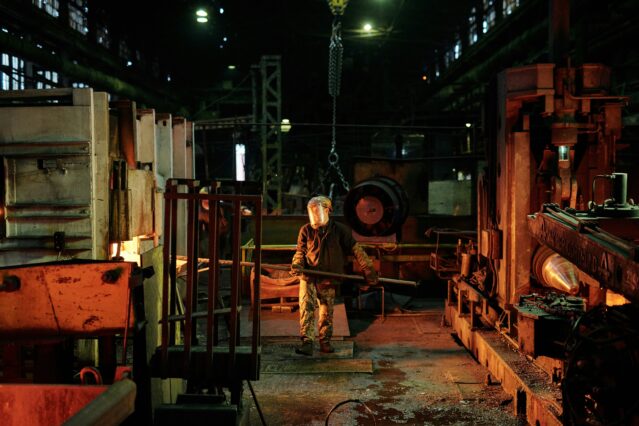
May 09, 2024
Your Guide to Marine Gas Oil
Navigating the world of marine fuels is complex, as there are so many options available to power ships and marine vessels. One of these options is marine gas oil (MGO), a low-sulphur fuel alternative to marine fuel oil (MFO). Understanding MGO is important for anyone within the marine industry, from ship operators to engineers, so we’ll be breaking down the basics of this fuel in this post. We’ll explore its properties, uses, and the regulations that apply to it, providing you with a comprehensive marine gas oil guide.
What is marine gas oil?
Marine gas oil, also known as low-sulphur fuel oil (LSFO), is a bunker fuel used in marine vessels. It is a distillate fuel produced by distilling crude oil.
The distillation process separates components in crude oil by their boiling points. These different compounds vaporise and then condense back into liquid at different temperatures. This process results in several products, including kerosene, diesel, gasoline, marine fuel oil, and marine gas oil.
What is bunker fuel?
‘Bunker fuel’ is an umbrella term for fuels stored in a ship’s bunker or, more recently, fuel tank. The name comes from the steam-powered ships of the past, where ships were fueled by coal which was stored in the ship’s coal bunker.
Any fuel stored on a ship is known as bunker fuel, not just marine gas oil. Other bunker fuels include heavy fuel oil (HFO), marine diesel oil (MDO), marine fuel oil (MFO), and marine gas oil (MGO).
What is marine gas oil used for?
Marine gas oil is used in marine vessels such as tankers, cargo ships, passenger ships, smaller boats, and yachts. It powers the engines and generates heat and electricity. Interstingly, marine gas oil is also used in other industries, including power generation as a backup fuel for diesel generators, and in agriculture for tractors and farm equipment.
What is the difference between marine gas oil and marine fuel oil?
Though named very similarly, marine gas oil (MGO) and marine fuel oil (MFO) are different.
Composition and density
MGO is a distillate fuel oil from crude oil with a low sulphur content. MFO is a residual fuel oil that is denser and more viscous than MGO.
Sulphur content
Because of its lower sulphur content, MGO is compliant with IMO sulphur emissions regulations. MFO, on the other hand, has a higher sulphur content and faces stricter sulphur emission regulations.
Storage and Handling
Due to MGO having lower viscosity, lower sulphur, and cleaner properties, it is easier to handle than MFO, which requires specialised handling systems and storage.
Cost
MFO is cheaper but may require specific treatments to meet environmental regulations, as well as specialised storage. MGO is more expensive due to its higher refining but meets regulations as is.
Marine gas oil specifications and regulations
The most harmful contaminant in diesel is sulphur. In its natural state, it isn’t toxic, but once it oxidises to create sulphur oxides, it’s incredibly harmful and has serious implications for health and the environment.
Because of this, regulations have been put in place to help reduce the environmental damage caused by these emissions. These are:
- IMO (International Maritime Organization) sulfur cap
- IMO Annex VI
- ISO 8217
IMO (International Maritime Organization) sulfur cap
This regulation, which came to be in 2020, is specifically aimed at reducing air pollution and protecting ecosystems from acid rain and other harmful sulphur emission effects. To comply, shipping operators must switch to low-sulphur fuels, explore alternative biofuels, or use Exhaust Gas Cleaning Systems or scrubbers.
ISO 8217
This international standard sets requirements for marine fuels used in marine diesel boilers and engines. It covers various aspects of marine fuels, such as their physical properties, performance characteristics, and chemical composition.
The aim of this standard is to better facilitate safe and efficient ship operations by ensuring the compatibility and quality of marine fuels.
IMO Annex VI
The International Maritime Organisation’s MARPOL Annex VI regulates air pollution caused by marine vessels. This regulation limits emissions of nitrogen oxides and sulphur oxides from ship exhausts, which cause harm to the environment.
Annex VI establishes ECAs, which stands for Designated Emission Control Areas. These areas with stricter emission limits promote the use of alternative fuels and technologies that optimise energy usage. This is to reduce the pollution created by shopping operations.
Fuelsource: your marine gas oil suppliers
Here at Fuelsource, we can arrange for marine gas oil to be delivered where you need it. You’ll be given a designated account handler who will be with you from the first enquiry to the delivery. It’s our goal to ensure your business runs smoothly with the fuel it needs, be that marine gas oil for your tankers or heating oil for your health clinic.
Contact us on 0207 846 0255 for our expert fuel supplier services, or to use our 24-hour emergency fuel delivery service.



